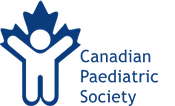Paediatricians on concussions: If in doubt, sit them out
OTTAWA—The Canadian Paediatric Society (CPS) is urging parents, coaches, and healthcare providers to be more aware of the signs and symptoms of concussion among children and youth. Athletes who sustain a head injury should be removed from the activity immediately, and seen by a physician as soon as possible.
“Because their brains are still developing, children and adolescents are more vulnerable to head injury and take longer to recover from concussions than adults,” explains Dr. Laura Purcell, author of a new CPS statement for physicians on sport-related concussion. “Concussions need to be recognized and managed appropriately so they don’t cause long term effects on the child or adolescent’s social, academic, and sport achievements.”
Concussions are too common in youth sports. They can be caused by a direct blow to the head, neck, or face, or by a blow somewhere else on the body that sends force to the head. Most concussions do not cause loss of consciousness. Recovery can take longer in children and adolescents than in adults, in some cases lasting months.
“Symptoms can be different for different athletes. The most common signs are headache, dizziness, sensitivity to light or sound, and confusion or difficulty concentrating,” explains Dr. Purcell, member of the CPS Healthy Active Living and Sports Medicine Committee. “Younger children may complain more of an upset stomach rather than a headache, or they may display behavioural changes instead of complaining about physical symptoms.”
The CPS recommends that children or teens with a concussion should:
- Rest until all symptoms are gone.
- Not play sports, exercise or participate in any recreational activities.
- Limit activities like reading, texting, watching television, computer work and electronic games.
- Be cleared by a physician before returning to school or sports.
To access the full position statement, visit: Evaluation and management of children and adolescents with sports-related concussion.
About the Canadian Paediatric Society
The Canadian Paediatric Society is a national advocacy association that promotes the health needs of children and youth. Founded in 1922, the CPS represents more than 3,300 paediatricians, paediatric subspecialists and other child health professionals across Canada.
Last updated: Oct 5, 2012
